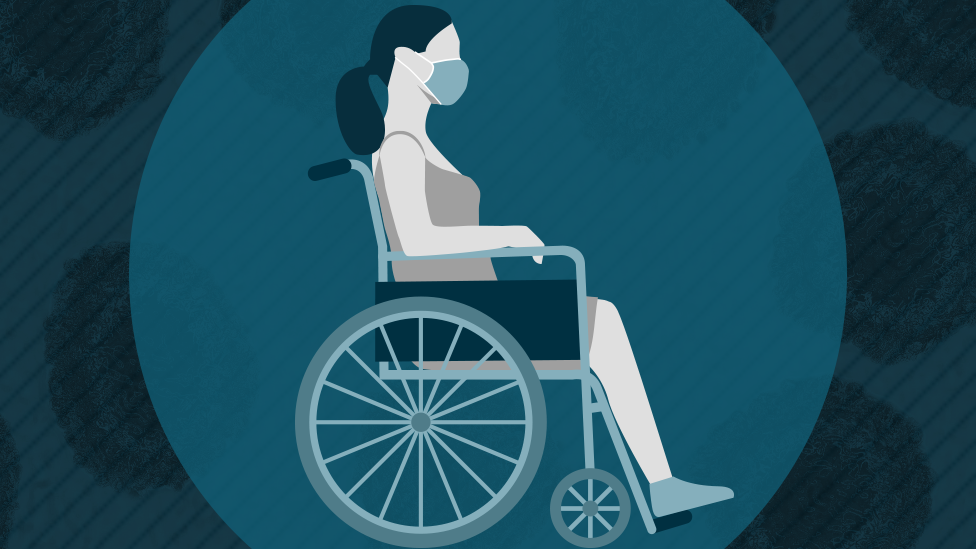Coronavirus: Young, fit and recovering
- Published
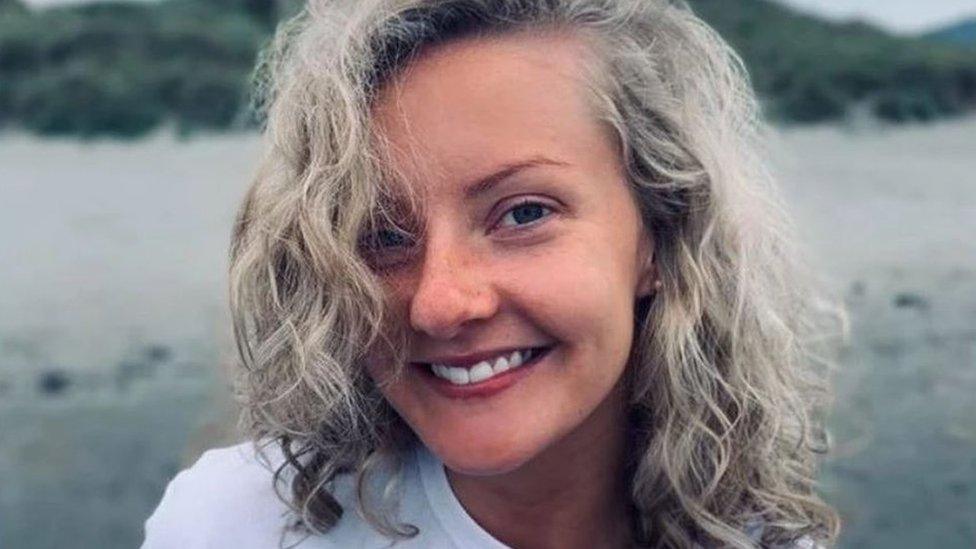
Sara said it has been the loneliest time of her life
Almost five million people around the world are known to have recovered from coronavirus, external but the road to full health is not the same for everyone.
For some, the effects of the virus last for months after catching it while doctors are also concerned about the long-term impact on the mind and body.
NHS worker Sara Edwards, from Pembrokeshire, is 26 and was "fit and healthy" but has been ill with the coronavirus for more than 10 weeks.
This is her story.

Coronavirus or COVID-19 has made an impact on all our lives, whether we've contracted the virus or not.
I am a fit and healthy woman, yet contracting the virus has had an immense impact upon me. I suffer from mild asthma and a number of severe food allergies but no other medical conditions. So, I ask, why me?
Having developed Covid-19 ten weeks ago now, I feel I have experienced a rollercoaster of ill health, utter exhaustion and a concoction of emotions.
Despite not being hospitalised, my experience has felt long and extremely frightening with my symptoms fluctuating each day.
Thinking back to when we realised the virus was a real threat to our country, it was clear that those most vulnerable within our society were aged over 70 or had pre-existing health conditions.
So as a fit and healthy woman in my twenties, I did not feel particularly concerned about shaking off the virus should I become infected.
When I began to experience a headache and pains in my legs and back - in early April - I dismissed the symptoms as either fatigue from working long hours or possibly of a mild dose of the virus that would pass with rest.
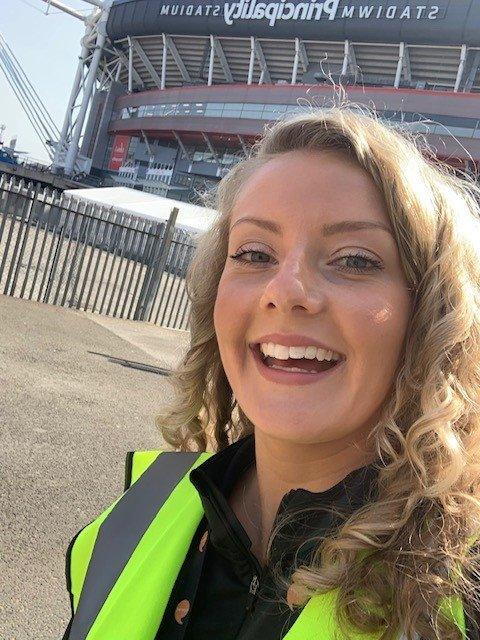
Sara was working at the Principality Stadium field hospital before becoming ill
Some of my NHS colleagues who I had been working closely with became ill with coronavirus, so it made sense for me and everyone in my household to self-isolate and to be tested.
The test result came back negative, which made sense given I had only vague symptoms.
However, over the next five to seven days, the pains worsened. The most excruciating pain developed in my hips, knees and legs. Then I started to have a tight chest, a dry cough and was waking every morning with a throbbing headache.
Struggling to breathe
By now I was questioning the result of my Covid-19 test - and, following a further swab, results confirmed I was Covid positive.
Despite self-isolating, I was mortified that I could have unknowingly put others at risk.
From that point on, my condition deteriorated. The shortness of breath worsened and my family noticed that I couldn't form a sentence without taking sharp breaths between words. I struggled to catch my breath when doing anything more than walking.
I would usually run four or five times a week but walking upstairs, brushing my hair, kneeling down to put on socks... it all felt like a chore. It was fatigue like nothing I have ever experienced before and left me feeling completely hopeless.
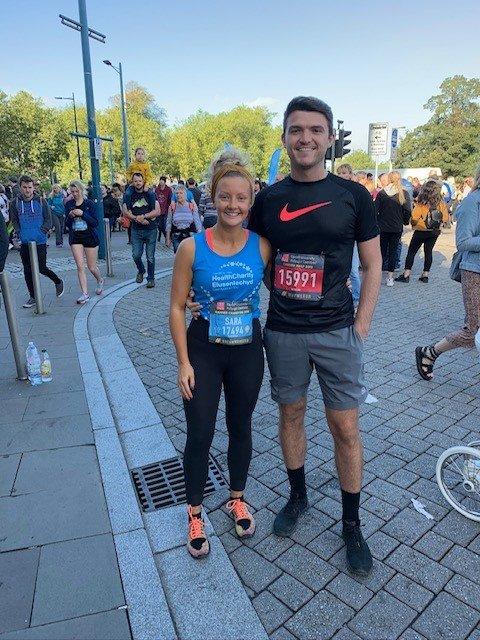
Sara has completed a half-marathon but now struggles to walk for 15 minutes
One morning, three weeks after the diagnosis, I woke up with a headache as if I had drunk a couple of bottles of red wine the previous night, my heart racing and shallow breathing. I knew I needed to ask for help.
I was referred to the medical assessment unit at my nearest hospital. I was presenting with a number of symptoms, included tachycardia [high pulse rate], variable blood oxygen levels, and acute chest and back pain. My symptoms were likely persisting signs of the virus and I was sent home.
But day after day, the extreme fatigue continues. It's like waking up to a lucky dip each morning. What will it be today - a muggy head? Chronic back and chest pain? Strange dreams? Breathlessness? Dizziness? Fever? Swollen eyes?
Some days I feel more optimistic and make small attempts to feel normal again - a short walk, cooking lunch, light gardening - but this is nearly always leads to feeling dreadful the next day.
When you Google "Covid recovery times" for people who have not been hospitalised, it says a period of about two weeks.
I have not been hospitalised and yet I still feel unwell; questioning why I'm not getting better in that time. For someone who normally functions at 100mph, the contrast has been immense.
Feeling isolated
It's the most lonely I've felt in my life.
Not knowing anyone or being able to relate to someone going through the same thing has left me feeling isolated. Those around have helped me cope.
Friends, family, colleagues - people quietly stepping in, reminding me that I'm not alone and that "this will pass".
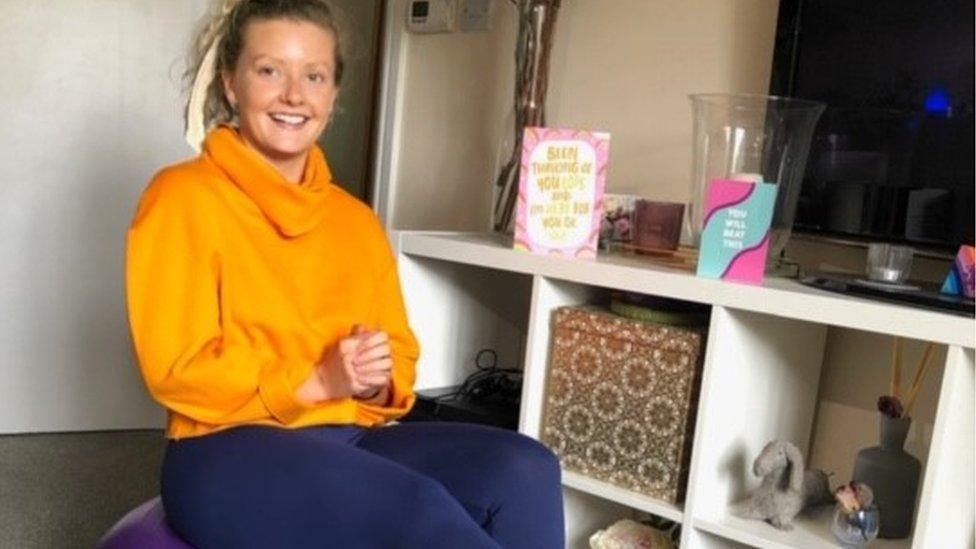
Sara is unable to work and has been recovering at home
For others experiencing something similar, it's not abnormal to have symptoms which persist for weeks.
Covid-19 is not "just a virus" - it's important that people understand its repercussions can have far greater significance.
Medics believe I have post-virus fatigue and I'm making small progress each day - with short 10-minute walks - but it may take a while.
For now, I'm going to sit back and try to think of this period positively - a period of rest and relaxation to get better. Let's be honest, when else does life ever offer that opportunity?

SOCIAL DISTANCING: What are the rules now?
40,000 DEATHS: Could they have been prevented?
TESTING: Who can get a test and how?
YOUR QUESTIONS: Our experts have answers

- Published29 June 2020
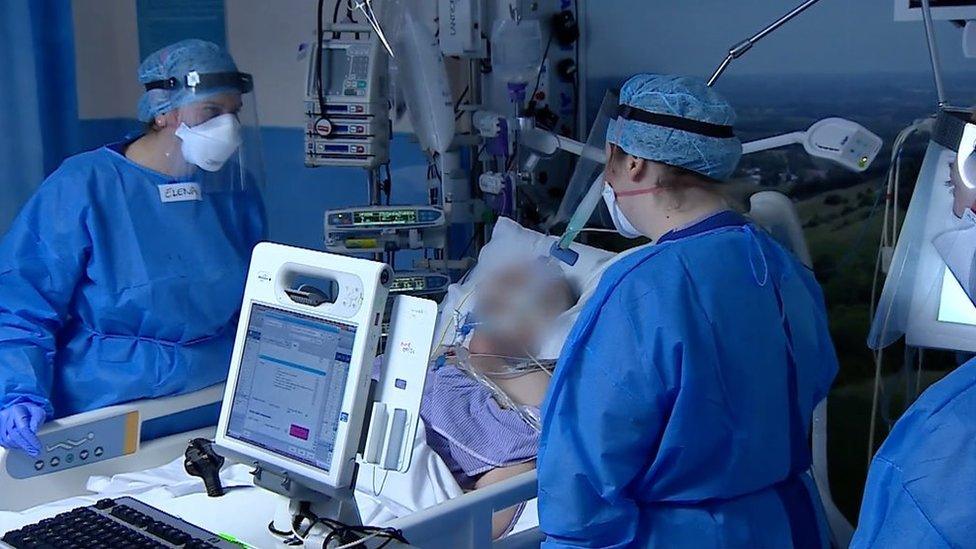
- Published25 June 2020
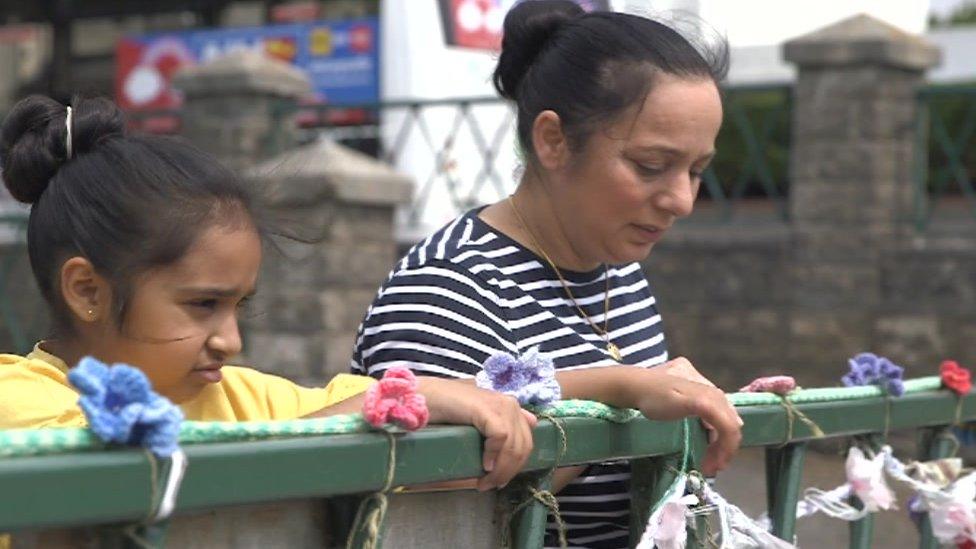
- Published31 May 2020
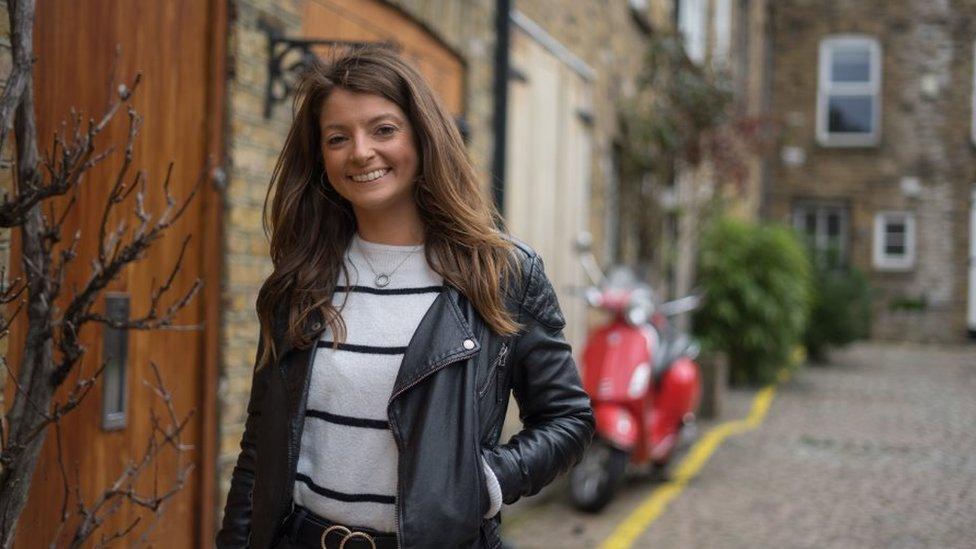
- Published19 May 2020
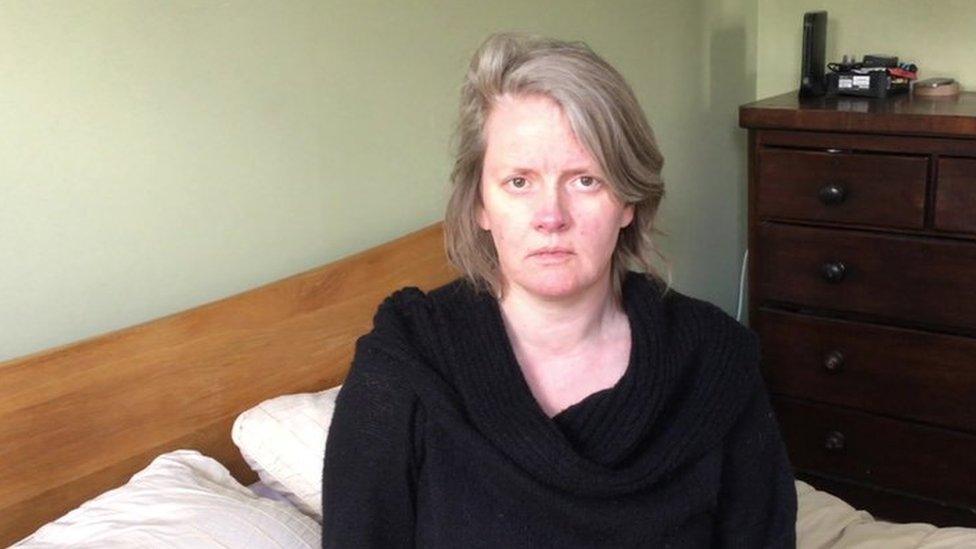
- Published8 May 2020
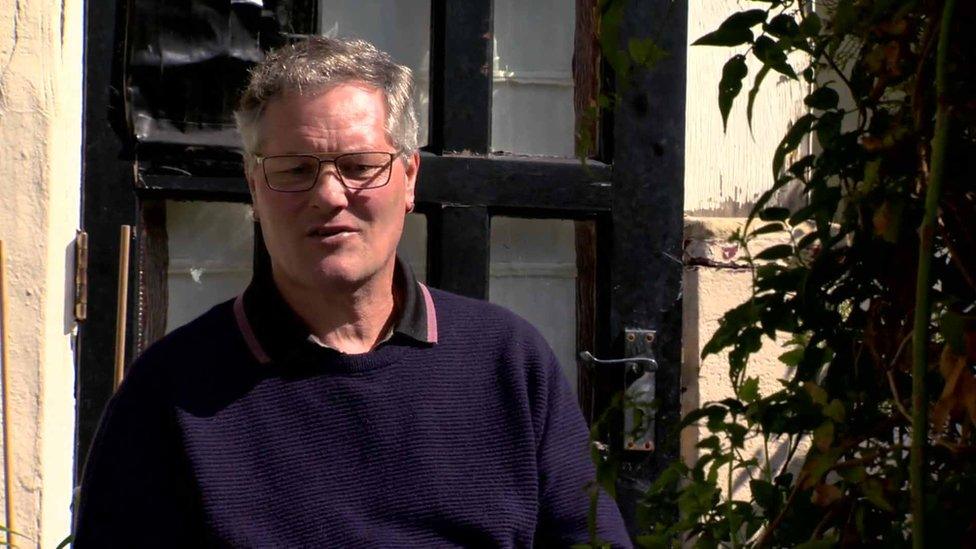
- Published6 May 2020
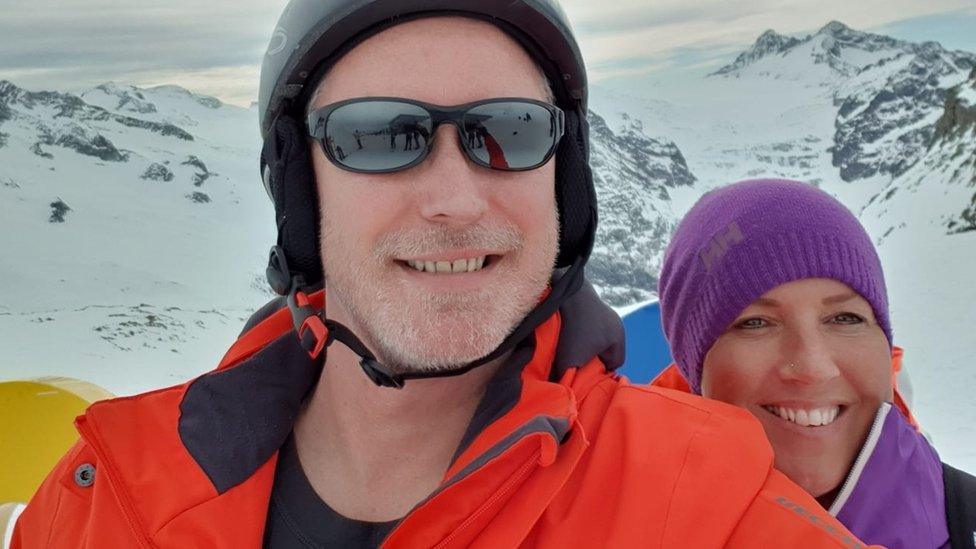
- Published6 May 2020
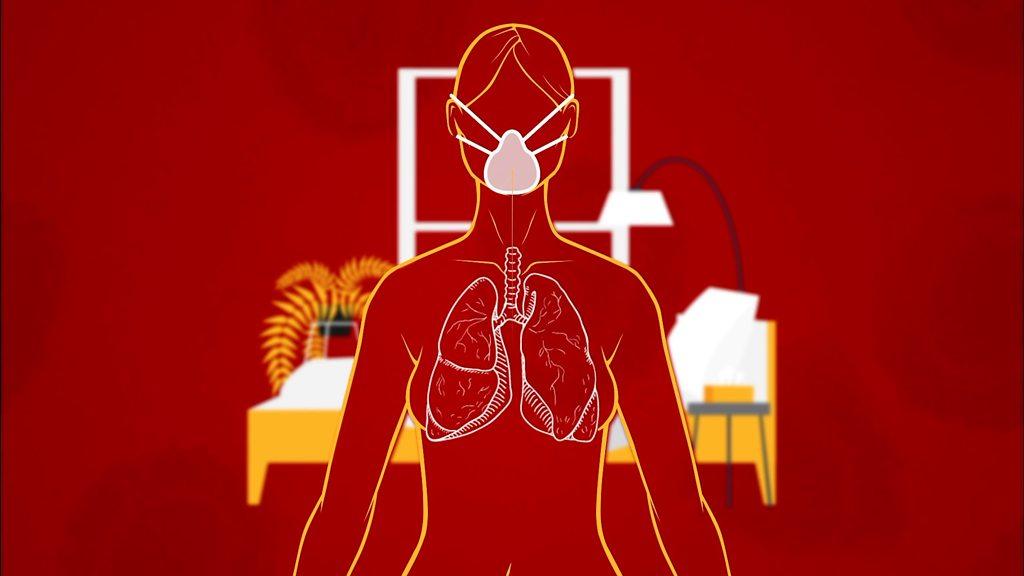
- Published1 May 2020
